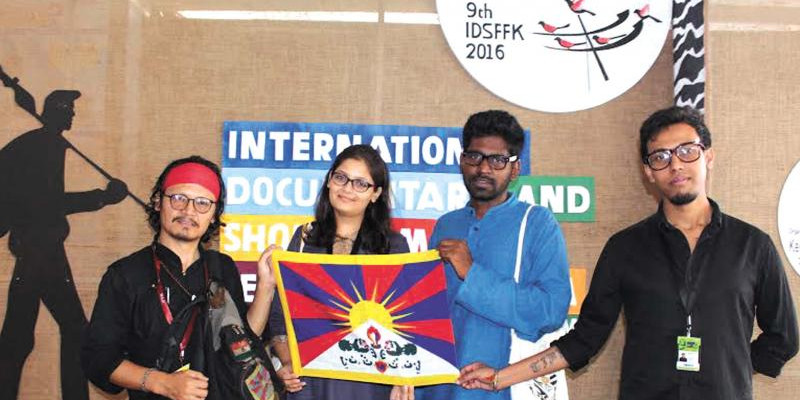Young Indian student’s short film about Tibet wins big at some of the international film festivals and listed in many others. Three young Indian students from Bangalore made a short film about the real life situation of Tibetan refugees living in India and the film has won the best documentary short film at Bangalore Short Film Festival, 2017.
Aiman, Santosh Chandrasekhar and Sumit Dasgupta who have just graduated from St. Joseph’s college in Bangalore from the department of Mass Communications had made the short film called ‘Rangzen’ as part of their final year project. However, the short film has been awarded three trophies at three international film festivals and it is still listed in several other film festivals.
“Bengalureans Santosh Chandrasekhar, 26, Aiman S, 24 and Sumit Dasgupta, 24 started working on their dream project Rangzen – a 39-minute-long documentary film on Tibetans, hardly did they know it will fetch this trio the award for best documentary in Bangalore Short Film Festival 2017.” reported the Times of India on Tuesday.
“News about Tibetan protests receives wide coverage, but the identity crisis among Tibetans living in India is hardly explored. This particular aspect, I think, needs a lot of attention. Even the mainstream media usually shies away from any proper coverage on this aspect. Many do not consider Tibetans a distinct community, and usually club them with people from Northeast India,” said Santosh Chandrasekhar according to news reports.
The Josephites created the entire film by themselves. Right from shooting, which they completed in four weeks, to editing and all the aspects of making the film, which they completed in four months, was completely done by themselves.
“Rangzen means freedom, and many from the younger generation of Tibetans are holding on to their culture, hoping to return to a free Tibet someday,” he added.
The makers felt that many Indians were unaware of the fact about the situation of Tibetans in India. They have explored the entire context of the Tibetan administrative body based in India, to the election of political leaders of exile Tibetans through proper democratic process. They are also overwhelmed by the kind of response received by their project about Tibetans.
“At first, we wanted to make a small film. We knew we wanted to work on this topic, but did not expect this kind of response. We are truly grateful,” said Santosh.

